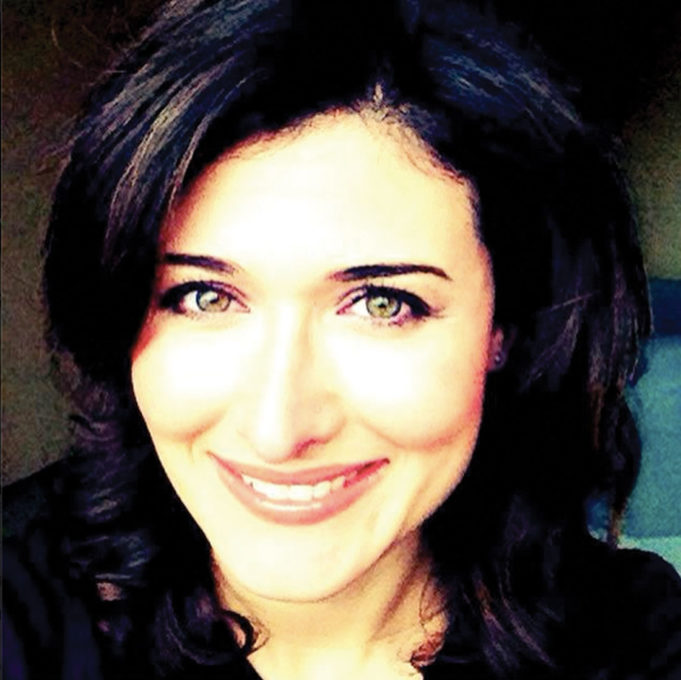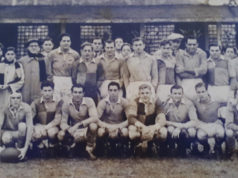A year ago, Fort Worth native Amy Guth made what she thought was an innocuous comment on her Chicago-based radio talk show. The thirtysomething said it doesn’t cost anyone to say “happy holidays” instead of “merry Christmas.” Aside from the rolling eyes of a few conservative listeners, she didn’t imagine her comment would elicit much of a response. She underestimated the powder keg of internet harassment culture. And her remark was just the spark that a quasi-anonymous mob needed.
An angry man called into her late-night show and responded to her quip with a profanity-laden rant. Guth and her producer wouldn’t allow him on the air. The next day, a man she didn’t know tweeted her social security number. A different man published a Google image of her parents’ house on Twitter. Her social media feed filled up with personal information, threats, and insults.
Guth was doxed, a term for a specific kind of cyber bullying in which hackers publish someone’s private information. And her harassment didn’t stop there.
“At my station, there’s a text message screen that you can see in real time,” she said. “There were specific threats to me, like rape threats and death threats. Some of [the other threats] were just inappropriate but not illegal.”
The internet has always been a magnet for bullies. But in recent years, social media has ratcheted up harassment. What used to just be the false online bravado of basement-dwelling computer nerds has taken a dark turn. In the current web climate, packs of faceless jackals prey on their target, then hide behind freedom of speech. In some cases, the online harassment becomes real-life stalking and violence. Women face issues like revenge porn, GamerGate, and “men’s rights” websites that post women’s photos and personal information.
Though she admitted to being scared and feeling hunted, Guth, who also contributes to a morning television show, decided to do something about it. She is attempting to crowdfund an online documentary series that will deal with the online harassment that women face. She hopes to raise $48,000 on Kickstarter by Friday, Nov. 13. At press time, her project was more than half-funded, with 10 days to go.
The money she’s raising will pay for two seasons of about a dozen or so 22-minute episodes that will tackle different facets of online harassment. She hopes to do three or four additional seasons but thought funding that far ahead was too ambitious. Originally, she wanted to produce one 90-minute feature but widened the scope of the project after she started the research process.
Guth covered the tech beat for the Chicago Tribune and saw the vitriol of GamerGate, when prominent women video game creators and a critic were relentlessly harassed and stalked by gamers. She has also responded to misogyny through her roll as president of the Chicago Association for Women Journalists and senior facilitator at the OpEd Project’s Public Voices fellowship, a nonprofit whose members work with talk show panelists, OpEd writers, and people being interviewed by the press to help keep them on-message.
She interviewed victims of online harassment and said one of the things that has frustrated her is how many important voices refused to speak out.
“People with really major things to say said they would either be afraid to share their expertise because of what might happen, or they would share and get the blow-back and be like, ‘I’m out,’ ” she said. “Some of them have life-saving information in their head.
“We have this ‘don’t feed the trolls’ narrative, ‘just walk away’ and ‘don’t look at it if you don’t like it,’ ” she said.
That was the attitude of the police when she reported her experience.
“When I went to law enforcement, the gist of their response was, ‘Just get off the Twitter, sweetheart,’ ” she said. “And I said, ‘Wait, this man said he was going to throw my severed head down Michigan Avenue. Can we do something about that?’ ”
The police’s attitude, she said, is similar to the public narrative on rape culture, which blames the victim first.
“If you are threatened and complain about it, the questions stop just short of ‘What were you wearing?’ ” she said. “You get a lot of, ‘What did you say to piss that guy off?’ or ‘Well, you put yourself out there.’ ”
How the police should handle harassment is one of the series’ many topics. She also plans to explore the range of online harassment, its history, the public’s narrative on the subject, who is committing these acts and why, people who defend harassment, who is working to change it and whether or not it’s working, and the various solutions that could end it.
“There are other places in the world where this is looked at in a very different way, and I want to find out why,” she said. “Culturally, in some parts of Asia, it is considered morally reprehensible for someone to do this online.”
A major part of her focus will be on what she calls incivility. Her premise, based on experience, is that if you point out someone’s bad behavior in a non-snarky way, he or she will be forced to examine what they’re doing.
“Facebook changes their logo, the web freaks out,” she said. “And when you pin someone down on why it bothers them, they don’t know. They’re just going along with the group mentality.
“There are some specific actions you can teach people,” she continued. “Instead of firing back rudely, you can challenge yourself to ask questions, ‘Hey, what did you mean by that?’ You can bypass a lot of nonsense with that phrase.”
Guth said she isn’t advocating for censorship in any way. In fact, she believes that would make things worse. Her solution is to create a conversation about what should be said online, as opposed to what’s allowed.
“Just because you have the right to say something doesn’t mean you don’t have a responsibility to behave a certain way online,” she said.
She also hopes to inspire others to speak out and become a part of the solution.
“I have this rule,” she said. “If you catch yourself saying, ‘Someone should do something about this,’ that someone should be you.”












